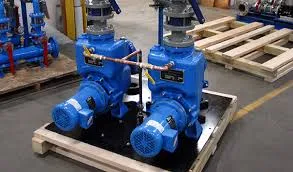English
- Afrikaans
- Albanian
- Amharic
- Arabic
- Armenian
- Azerbaijani
- Basque
- Belarusian
- Bengali
- Bosnian
- Bulgarian
- Catalan
- Cebuano
- Corsican
- Croatian
- Czech
- Danish
- Dutch
- English
- Esperanto
- Estonian
- Finnish
- French
- Frisian
- Galician
- Georgian
- German
- Greek
- Gujarati
- Haitian Creole
- hausa
- hawaiian
- Hebrew
- Hindi
- Miao
- Hungarian
- Icelandic
- igbo
- Indonesian
- irish
- Italian
- Japanese
- Javanese
- Kannada
- kazakh
- Khmer
- Rwandese
- Korean
- Kurdish
- Kyrgyz
- Lao
- Latin
- Latvian
- Lithuanian
- Luxembourgish
- Macedonian
- Malgashi
- Malay
- Malayalam
- Maltese
- Maori
- Marathi
- Mongolian
- Myanmar
- Nepali
- Norwegian
- Norwegian
- Occitan
- Pashto
- Persian
- Polish
- Portuguese
- Punjabi
- Romanian
- Russian
- Samoan
- Scottish Gaelic
- Serbian
- Sesotho
- Shona
- Sindhi
- Sinhala
- Slovak
- Slovenian
- Somali
- Spanish
- Sundanese
- Swahili
- Swedish
- Tagalog
- Tajik
- Tamil
- Tatar
- Telugu
- Thai
- Turkish
- Turkmen
- Ukrainian
- Urdu
- Uighur
- Uzbek
- Vietnamese
- Welsh
- Bantu
- Yiddish
- Yoruba
- Zulu
Telephone: +86 13120555503
Email: frank@cypump.com
Nov . 05, 2024 10:59 Back to list
basement sewage pump
Understanding Basement Sewage Pumps Essential for Home Safety and Sanitation
A basement sewage pump is a crucial component for many homes, particularly those that have bathrooms or laundry rooms located below the main level. This device is designed to move wastewater, including sewage, from lower-level areas to the main sewer line, preventing backup and flooding. In this article, we will explore how sewage pumps work, their benefits, and why they are essential for maintaining sanitation and safety in your home.
How Basement Sewage Pumps Work
Basement sewage pumps typically operate automatically through a float switch, which monitors the water level in the sump basin. When the water level rises to a certain height, the float switch activates the pump, which begins to remove the wastewater. The pump pushes the sewage through a discharge pipe that leads to the sewer system or a septic tank.
There are two primary types of sewage pumps submersible and pedestal. Submersible pumps are submerged in the sewage, making them quieter and more efficient. They are often used in areas where space is limited. Pedestal pumps, on the other hand, have the motor mounted above the sewage. While they may be louder, they are easier to maintain because the motor can be accessed without having to remove the pump from the basin.
Benefits of Using a Basement Sewage Pump
1. Preventing Flooding One of the most critical functions of a sewage pump is to prevent flooding in the basement. Heavy rains, sewer backups, or problems with the municipal sewer lines can quickly lead to water accumulation. A basement sewage pump ensures that wastewater is promptly removed, mitigating the risk of flooding.
2. Improved Sanitation Without a sewage pump, basements can become breeding grounds for bacteria and odors. By effectively managing wastewater, these pumps help maintain a hygienic living environment, essential for family well-being.
3. Protecting Property Value Excess moisture and sewage backups can cause significant damage to a home, leading to costly repairs and potentially affecting property value. By investing in a sewage pump, homeowners can protect their property and maintain its market value.
basement sewage pump

4. Ease of Use Modern sewage pumps operate automatically, allowing homeowners to focus on their daily activities without the constant worry of potential sewage issues. Many pumps also feature alarms that alert homeowners to potential problems, ensuring timely action can be taken if necessary.
Choosing the Right Sewage Pump
When selecting a basement sewage pump, several factors should be considered
- Pump Capacity This refers to the volume of water the pump can handle. It is essential to choose a pump with sufficient capacity to manage your household's needs, especially if you have multiple wastewater sources.
- Motor Power The power of the motor directly impacts the pump's efficiency. A more powerful motor can handle larger volumes and provide better performance, especially in situations where frequent or heavy use is expected.
- Durability Sewage pumps are located in harsh environments and should be built to withstand the conditions. Look for pumps made from corrosion-resistant materials to ensure longevity.
- Maintenance Consider how easy it is to maintain the pump. Some models are designed for easy access to the motor and components, simplifying routine inspections and repairs.
Conclusion
A basement sewage pump is an indispensable asset for homes with lower-level bathrooms or laundry facilities. By effectively managing wastewater, these pumps prevent flooding, improve sanitation, and protect property values. When choosing a sewage pump, consider factors such as capacity, motor power, durability, and maintenance. Investing in a quality sewage pump will ensure your home remains safe, sanitary, and free from unpleasant surprises.
-
Horizontal Split Case Pump with GPT-4 Turbo | High Efficiency
NewsAug.01,2025
-
ISG Series Pipeline Pump - Chi Yuan Pumps | High Efficiency, Durable Design
NewsAug.01,2025
-
Advanced Flue Gas Desulfurization Pump with GPT-4 Turbo | Durable & Efficient
NewsJul.31,2025
-
ISG Series Vertical Pipeline Pump - Chi Yuan Pumps | Advanced Hydraulic Design&Durable Construction
NewsJul.31,2025
-
ISG Series Vertical Pipeline Pump - Chi Yuan Pumps | Energy Efficient & Low Noise
NewsJul.31,2025
-
pipeline pump - Chi Yuan Pumps Co., LTD.|High Efficiency&Low Noise
NewsJul.31,2025










